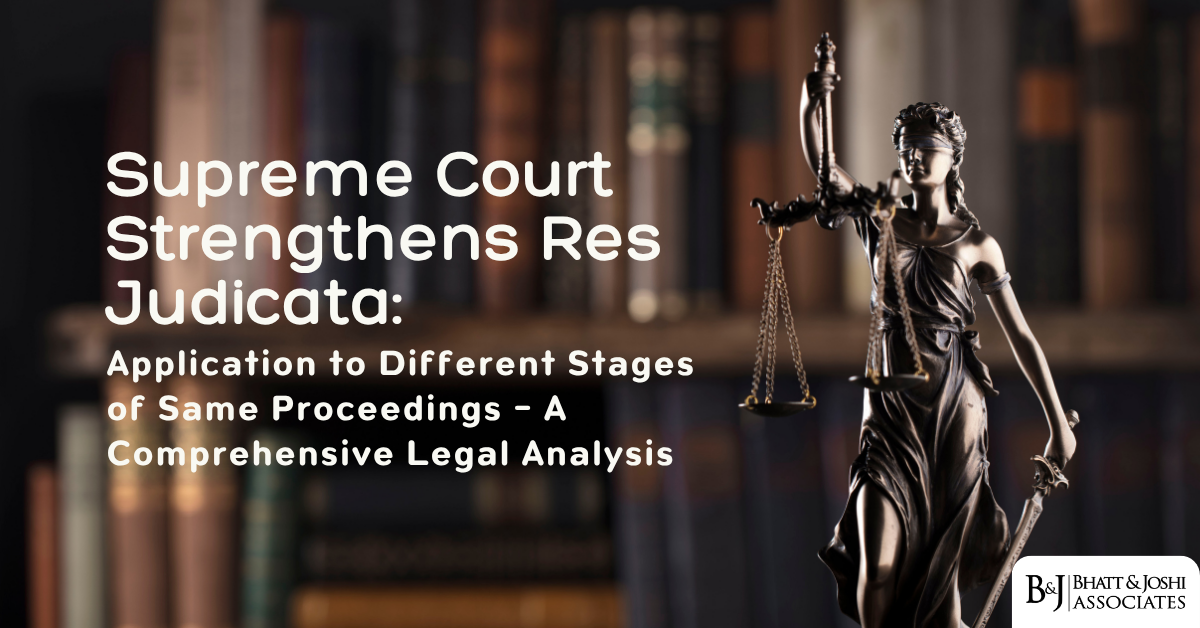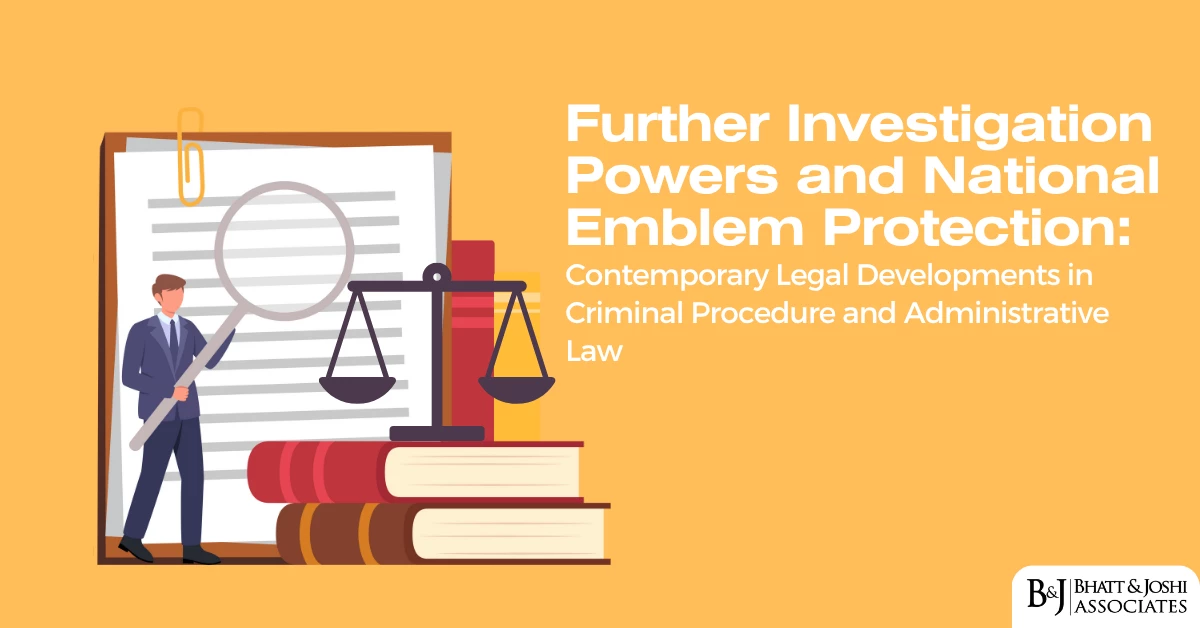Introduction
The Securities and Exchange Board of India (SEBI) operates as the apex regulatory authority governing India’s securities markets, wielding extensive powers under the Securities and Exchange Board of India Act, 1992 [1]. SEBI is established to protect the interests of investors in securities and to promote the development of, and to regulate the securities market and for matters connected therewith or incidental thereto. When SEBI exercises its regulatory and enforcement powers, it can significantly impact intermediaries operating within the securities ecosystem. Understanding the appellate mechanisms available against SEBI orders becomes crucial for intermediaries seeking to protect their legitimate interests and maintain their operations within the regulatory framework.
Understanding SEBI’s Enforcement Architecture
The Regulatory Framework
SEBI’s enforcement architecture operates through multiple statutory provisions that grant the regulator both preventive and punitive powers. The discretionary and wide-ranging powers granted to SEBI have sometime resulted in inconsistent and disproportional decision, leading to ambiguities. The regulatory body functions through three distinct capacities: quasi-legislative (rule-making), quasi-judicial (adjudication), and quasi-executive (enforcement).
Types of SEBI Orders: Quasi-Judicial vs Administrative Distinction
The distinction between quasi-judicial and administrative orders forms the cornerstone of appellate jurisdiction under securities law. In a landmark judgment, the Hon’ble Supreme Court held that only “quasi-judicial” orders of SEBI under Section 11B and Section 15 are subject to appellate jurisdiction of Securities Appellate Tribunal (SAT). Administrative orders such as circulars/notifications issued under the SEBI Act and rules/regulations made thereunder are outside the appellate jurisdiction of SAT.
Quasi-Judicial Orders
Quasi-judicial orders represent SEBI’s adjudicatory functions where the regulator acts in a judicial capacity following established principles of natural justice. These orders are characterized by adherence to due process requirements including the issuance of show cause notices, providing opportunities for hearing, and consideration of evidence presented by the affected parties. The functions of the Board under Sections 11(1), 11(4), 11(4A), 11B, 11D of the SEBI Act are quasi-judicial in nature.
Section 11B of the SEBI Act empowers SEBI to issue directions in the interest of investors or securities market. Section 11B expressly provides for either pre-decisional hearing or post. The provision has undergone significant judicial interpretation, with courts establishing that the power u/S.11B(1) was meant to be preventive and remedial and not punitive and that it was to be used as a response to an emergency.
The adjudication proceedings under Sections 15A to 15J represent another category of quasi-judicial orders. Under Section 15, SEBI begins the formal enforcement process by appointing an Adjudicating Officer (AO). The AO investigates the facts and reports his/ her findings to the SEBI board. If the findings are adverse, a show cause notice is issued to the noticee by the AO to explain why a monetary penalty should not be levied on such person.
Administrative Orders
Administrative orders encompass SEBI’s regulatory and policy-making functions, including the issuance of circulars, guidelines, notifications, and regulatory frameworks. These orders are generally prospective in nature and establish regulatory standards for market participants. Administrative orders such as circulars/notifications issued under the SEBI Act and rules/regulations made thereunder are outside the appellate jurisdiction of SAT. Such orders will only be subject to review by the High Court or the Supreme Court under Article 226 and 32 of the Constitution respectively, vide a writ petition.
Investigation Powers and Inquisitorial Functions
SEBI’s investigative powers under Section 11C of the SEBI Act represent inquisitorial rather than quasi-judicial functions. The powers conferred by the said section on SEBI are in the nature of “inquisitorial powers” and not “quasi-judicial powers”. The High Court further held that an investigating authority is extensively empowered to unearth facts and cause a detailed investigation into the matter.
SEBI functions in an inquisitorial capacity while examining the issue, whether reasonable grounds exist to believe that the transactions in securities market are being dealt with in a manner detrimental to the investors or the securities market, or whether any intermediary or any person associated with the securities market has violated any of the provisions of the SEBI Act or the rules & regulations made thereunder, or directions issued by the Board.
The Securities Appellate Tribunal: Composition and Jurisdiction
Statutory Framework and Evolution
The Securities Appellate Tribunal (SAT) was established under Section 15K of the SEBI Act, 1992, as a statutory body to hear appeals against orders passed by SEBI or its adjudicating officers [2]. Securities Appellate Tribunal (SAT) is formed as a statutory and autonomous body as per the provisions of the SEBI Act, 1992 where orders passed by the SEBI are appelled, heard and resolved or by an adjudicating officer under the Act.
The composition of SAT has evolved significantly over the years. Section 15L of the SEBI Act was then amended in the year 2002, envisaging a three member bench comprising a presiding officer and two other members as may be notified by the Central Government. However, this amendment only mentioned ‘members’, without specifying distinctions such as technical and judicial members.
The current framework, as amended by the Finance Act, 2017, provides for a more structured composition. The concept of a technical member and a judicial member was introduced through an amendment in April 2017 vide the Finance Act no. 7 of 2017 and the section as it stands today, has the following features:- A bench may be constituted by the Presiding Officer with two or more Judicial or Technical members as he may deem fit. Every bench constituted shall include at least one Judicial Member and one Technical Member.
Qualification Requirements for SAT Members
The qualification requirements for SAT members reflect the specialized nature of securities regulation. The person so appointed as the presiding Officer should meet with the following requirements: The retired or sitting judge of the high court, who has completed at least seven years of service as a judge in a high court. The SAT is headed by a Presiding Officer, who is required to be a Judge of the Supreme Court or a Chief Justice of a High Court or a Judge of High Court for at least seven years, and such number of Judicial Members and Technical Members as may be prescribed.
Extended Jurisdiction of SAT
Beyond SEBI orders, SAT’s jurisdiction has been expanded to include appeals from other financial sector regulators. Securities Appellate Tribunal hears appeals against the following orders: Orders issued by the Insurance Regulatory and Development Authority of India (IRDAI) in relation to cases filed before it. Orders issued by the Pension Fund Regulatory and Development Authority (PFRDA) in relation to cases filed before it.
Procedural Framework for Appeals Before SAT
Statutory Timeline and Limitation Period
The procedural framework for filing appeals before SAT is governed by the Securities Appellate Tribunal (Procedure) Rules, 2000 [3]. Every appeal shall be filed within 45 days from the date on which a copy of the order made by SEBI or the adjudicating officer is received by him and accompanied by such form and fees as may be prescribed.
The statutory provision recognizes circumstances where strict adherence to the timeline may cause injustice. The SAT may entertain an appeal after the expiry of the said period of 45 days if it is satisfied that there was sufficient cause for not filing it within that period. This discretionary power ensures that genuine cases are not dismissed merely on technical grounds.
Form and Fee Requirements
Appeals before SAT must comply with specific procedural requirements designed to ensure proper presentation of the case. The appeal has to be filed in Form A as prescribed in the Securities Appellate Tribunal (Procedure) Rules, 2000. A copy of the order appealed against has to be attached along with other relevant documents and evidence.
The fee structure is designed to be reasonable while ensuring serious litigation. For appeals against adjudication orders under Chapter VIA of the SEBI Act, The amount of fee payable regarding the appeal against adjudication orders made under Chapter VIA of the Act shall be as follows: The amount of fee payable regarding any other appeal against the order passed by the Board under the Act will be rupees five thousand only.
Documentary Requirements and Service
The procedural rules mandate comprehensive documentation to enable proper adjudication. Every memorandum of appeal shall be in triplicate and shall be accompanied with copies of the order, at least one of which shall be certified copy, against which the appeal is filed.
Service requirements ensure that all parties are properly notified of the proceedings. A copy of the appeal along with all the annexures has to be served to SEBI or the adjudicating officer who passed the order. A proof of such service has to be filed with the SAT.
Representation and Appearance
The Rules provide for appropriate representation before SAT, recognizing the technical nature of securities law matters. As per the SEBI Act, any authorised person is a Company Secretary, Chartered Accountant (CA), Cost Accountant or Legal Practitioner can appear before Securities Appellate Tribunal (SAT).
Powers and Procedure of SAT
Adjudicatory Powers
SAT possesses comprehensive powers to review and modify SEBI orders. On receipt of the appeal, the SAT may, after giving the parties to the appeal an opportunity of being heard, pass such order thereon as it thinks fit, confirming, modifying or setting aside the order appealed against. The tribunal also has the power to remand matters for fresh consideration when circumstances warrant such action.
Civil Court Powers
To ensure effective adjudication, SAT has been vested with powers equivalent to those of civil courts. The Securities Appellate Tribunal (SAT) will have the same powers as vested in a civil court under the code of civil procedure while trying a suit. These powers include the ability to summon witnesses, examine evidence, and ensure proper conduct of proceedings.
Timeline for Disposal
Recognizing the importance of timely resolution in commercial matters, the law mandates expeditious disposal of appeals. On receipt of the appeal, the Securities Appellate Tribunal may confirm, modify or set aside the order appealed against and such appeal should be disposed of within 6 months from the date of receipt of such appeal.
Landmark Judicial Interpretations
The Bhavesh Pabari Precedent: Discretion in Penalty Imposition
The Supreme Court’s decision in Adjudicating Officer, SEBI v. Bhavesh Pabari [4] represents a watershed moment in securities law enforcement. The Adjudicating Officer, while imposing penalty had referred to the letter dated 6th May, 2009 by which Bhavesh Pabari and M/s. Shree Radhe were required to furnish information of details regarding trading in the GPL scrips.
The judgment clarified the discretionary powers of Adjudicating Officers in determining penalty quantum. The Supreme Court, interpreting the legislative intention, held that the intent was not to prescribe a minimum penalty of Rs. 1 lakh for every day during which the default and failure continued. The aggravating and mitigating circumstances, including those provided under Section 15J are required to be considered.
Most significantly, the Court held that the factors enumerated in Section 15J are illustrative rather than exhaustive. The Supreme Court rejected a narrow view of Section 15J and held that the provisions of Section 15J are merely illustrative, and where such circumstances exist, the adjudicating officer is not precluded from considering other factors while deciding the quantum of penalty.
Limitation and Delay in Proceedings
The issue of delay in initiating enforcement proceedings has been addressed by the Supreme Court, establishing principles that balance regulatory efficiency with fairness to regulated entities. The SC, in the Bhavesh Pabari Judgment, had examined the question of delay and laches in initiating proceedings under Chapter VI-A of the SEBI Act and the principle of law that when no limitation period is prescribed proceedings should be initiated within a reasonable time.
The Court established that while delay alone does not exonerate defaulters, it remains a relevant consideration. Further, the delay in issue of show-cause notice itself would not exonerate the defaulters under the SEBI Act and the relevant regulations, as has been held in Adjudicating Officer, Securities and Exchange Board of India v. Bhavesh Pabari.
Challenging Administrative Orders: Alternative Remedies
Representation Mechanism
For administrative orders that fall outside SAT’s jurisdiction, SEBI provides an internal representation mechanism. While the original article refers to Regulation 29A of SCRR, current practice involves direct representations to SEBI under its general administrative powers. Intermediaries challenging administrative orders must demonstrate how such orders affect their specific interests or operations.
The representation process requires intermediaries to articulate specific legal and factual grounds for challenging the administrative order. SEBI typically considers such representations through the concerned department that issued the original order, with scope for review by senior management when warranted.
Constitutional Remedies
When administrative orders involve jurisdictional errors or violation of fundamental rights, constitutional remedies become available. Administrative orders such as circulars and notifications issued under the SEBI Act, as well as rules and regulations made thereunder, are outside the appellate jurisdiction of SAT. Such orders can only be reviewed by the High Court or Supreme Court through a writ petition under Article 226 and 32 of the Constitution.
The grounds for constitutional challenge typically include lack of jurisdiction, violation of natural justice principles, manifest arbitrariness, or infringement of fundamental rights. Courts exercise this power cautiously, particularly in technical regulatory matters where expertise and policy considerations are involved.
Appellate Remedies Beyond SAT
Supreme Court Appeals Under Section 15Z
Appeals from SAT to the Supreme Court are governed by Section 15Z of the SEBI Act, which limits the Supreme Court’s jurisdiction to questions of law. Every person aggrieved by any order or decision of Securities Appellate Tribunal can file an appeal to the supreme court. Also, the appeal only can be made on any question of law.
The Supreme Court has clarified the scope of its appellate jurisdiction in securities matters. The Supreme Court in this matter, whilst dismissing the appeal, elaborated on the scope and extent of appellate jurisdiction of the Supreme Court available under Section 15-Z which was held to be confined to “questions of law”.
Timeline for Supreme Court Appeals
The statutory framework provides specific timelines for approaching the Supreme Court. The appeal should be made within 60 days from the date of receiving a copy of the order or decision of Securities Appellate Tribunal. However, the supreme court may further allow a period of 60 days for making an appeal, if it satisfied that the applicant was prevented from filing the appeal within the first 60 days due to sufficient cause.
Scope of Supreme Court Review
The Supreme Court’s review power in securities appeals is constrained by the “questions of law” limitation. This court, in the exercise of its jurisdiction under Section 15-Z of the SEBI Act, cannot go into the proportionality and quantum of the penalty imposed, unless the same is distinctly disproportionate to the nature of the violation which makes it offensive, tyrannous or intolerable.
This limitation ensures that the Supreme Court’s intervention is reserved for significant legal issues rather than routine factual disputes or disagreements with SAT’s assessment of evidence.
Recent Developments and Emerging Trends
Enhanced Enforcement Mechanisms
SEBI’s enforcement approach has evolved significantly, with increased focus on deterrent action and swift resolution of violations. This year SEBI revoked as many as 24 certificates of registration of intermediaries and also filed more than 86 prosecution cases against 211 entities, resulting in 18 convictions by the regulator.
SAT’s Approach to Remand Orders
Recent trends indicate SAT’s willingness to remand matters to SEBI for fresh consideration when procedural defects or inadequate reasoning are identified. In several recent appeals, the SAT remanded matters back to SEBI on various issues such a re-examining the methodology for computing disgorgement amounts and for re-investigating the facts and deciding the issues afresh.
Delegation of Quasi-Judicial Powers
The legal framework permits SEBI to delegate certain quasi-judicial functions to its officers, subject to statutory limitations. A plain reading of Section 19 of the SEBI Act shows that, all powers and functions of the Board (except the rule making power under Section 29) can be delegated to any member, officer or any other person.
Practical Considerations for Intermediaries
Strategic Approach to Appeals
Intermediaries facing SEBI orders must carefully evaluate the nature of the order to determine the appropriate appellate forum. The distinction between quasi-judicial and administrative orders is crucial in determining whether SAT has jurisdiction or whether constitutional remedies must be pursued.
Documentation and Evidence Management
Successful appeals require comprehensive documentation and evidence management from the initial stages of SEBI proceedings. Intermediaries should maintain detailed records of all communications, submissions, and procedural compliance to support their appellate contentions.
Timing and Procedural Compliance
Strict adherence to statutory timelines is essential for maintaining appellate rights. While SAT and courts have discretion to condone delay, reliance on such discretion should be avoided through proactive case management.
Cost-Benefit Analysis
The decision to appeal should involve careful cost-benefit analysis, considering the potential outcomes, legal costs, and business impact. The availability of settlement mechanisms should also be evaluated as an alternative to prolonged litigation.
Conclusion
The appellate framework governing SEBI orders represents a sophisticated balance between regulatory enforcement and protection of intermediary rights. The distinction between quasi-judicial and administrative orders, established through judicial interpretation, provides clarity on appropriate appellate forums while ensuring that all types of regulatory action remain subject to judicial oversight through appropriate mechanisms.
The evolving jurisprudence, particularly the Supreme Court’s guidance in cases like Bhavesh Pabari, has enhanced the fairness and predictability of securities law enforcement while maintaining SEBI’s ability to effectively regulate the securities market. Intermediaries operating within this framework must understand these appellate mechanisms not merely as post-facto remedies but as integral components of a regulatory system designed to balance market integrity with procedural fairness.
The continued evolution of this framework, driven by technological advancement, market complexity, and regulatory innovation, will require ongoing attention from legal practitioners and market participants to ensure effective navigation of the securities regulatory landscape.
References
[1] Securities and Exchange Board of India Act, 1992, available at: https://www.sebi.gov.in/acts/act15ac.html
[2] Securities Appellate Tribunal (Procedure) Rules, 2000, available at: https://www.sebi.gov.in/legal/rules/feb-2000/securities-appellate-tribunal-procedure-rules-2000_34665.html
[3] SEBI | Securities and Exchange Board of India Appellate Tribunal (procedure) Rules 1995, available at: https://www.sebi.gov.in/legal/rules/sep-1995/securities-and-exchange-board-of-india-appellate-tribunal-procedure-rules-1995_19342.html
[4] Adjudicating Officer, Securities and Exchange Board of India v. Bhavesh Pabari, (2019) 5 SCC 90, available at: https://indiankanoon.org/doc/144717824/
[5] Securities Law Series: SEBI and The Basic Structure of Securities Enforcement in India, available at: https://www.lexology.com/library/detail.aspx?g=75d77dd2-d3c7-4f0c-9e2c-0d3deaf5c6ad
[6] Securities Appellate Tribunal – Appeal Procedure, available at: https://www.indiafilings.com/learn/securities-appellate-tribunal/
[7] Procedure to file an appeal before the Securities Appellate Tribunal (SAT), available at: https://blog.ipleaders.in/procedure-to-file-an-appeal-before-the-securities-appellate-tribunal/
[8] Securities Appellate Tribunal- An Overview, available at: https://taxguru.in/sebi/securities-appellate-tribunal-overview.html
[9] Delegation Of Quasi-Judicial Functions By SEBI To Its Members Is Permissible: Kerala High Court, available at: https://www.livelaw.in/high-court/kerala-high-court/kerala-high-court-delegation-quasi-judicial-functions-sebi-229901
[10] The Powers of SEBI to pass Ex-Parte Ad Interim Orders, available at: https://www.barandbench.com/columns/the-powers-of-sebi-to-pass-ex-parte-ad-interim-orders
[11] Deep Dive 1 – Section 11B of SEBI Act, 1992, available at: https://www.thesecuritiesblawg.in/post/deep-dive-1-section-11b-of-sebi-act-1992
[12] Spotlight: public enforcement against securities market misconduct in India, available at: https://www.lexology.com/library/detail.aspx?g=ba61e1b3-333e-4c82-b5e9-0670043c1c2c
[13] SEBI’s powers to investigate: A Primer on section 11-C of the SEBI Act, 1992, available at: https://www.lexology.com/library/detail.aspx?g=c18274a4-6013-4294-9053-e09dd557a8ec
[14] Landmark Judgments on SEBI by Supreme Court and High Courts in 2022 Part II, available at: https://www.scconline.com/blog/post/2023/10/21/landmark-judgments-on-sebi-by-supreme-court-and-high-courts-in-2022-part-ii/
[15] Supreme Court on discretion to impose penalty under the SEBI Act, available at: https://www.finseclaw.com/article/supreme-court-discretion-impose-penalty-sebi-act
[16] Adjudication of penalties under SEBI: SC ruling gives controlled discretion to Adjudicating Officer, available at: https://vinodkothari.com/2019/04/adjudication-of-penalties-under-sebi-sc-ruling-gives-controlled-discretion/
PDF Links to Full Judgments
- https://bhattandjoshiassociates.s3.ap-south-1.amazonaws.com/judgements/1456380272563.pdf
- https://bhattandjoshiassociates.s3.ap-south-1.amazonaws.com/judgements/1492086931711.pdf
- https://bhattandjoshiassociates.s3.ap-south-1.amazonaws.com/judgements/Adjudicating_Officer_Securities_And_vs_Bhavesh_Pabari_on_28_February_2019.PDF














